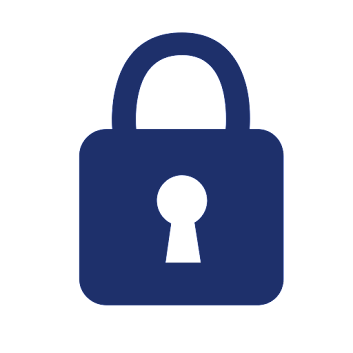Who Can Study Cyber Security?
The demand for highly qualified cybersecurity specialists is expanding as data breaches become a significant issue for an increasing number of firms across numerous industries. In fact, as more companies go online and technology advances, the need for information security will only rise, and those with the necessary training and expertise in cyber security will do well. This has given rise to the increasing importance of Cyber Security Course programs that are designed to train professionals to fit the market needs. Let us find out who can pursue a cyber security certification course in this post.
Cyber security professionals will need a broad range of skills and credentials, though, as cybersecurity is a very broad field and information security specialists might have a diversified range of responsibilities in addition to working in a huge variety of businesses.
Cyber Security Course Eligibility
Consider a career in cyber security if you feel you have some of the aforementioned abilities and a love for information security. One of the finest strategies to break into the information security industry at the beginning of your professional career is majoring or gaining a degree in a related field.
So, if you are wondering who can study or enroll in a Cyber Security course, having a specialization in a related field will qualify you for any Cyber Security course. Below is a list of the degree fields that will qualify you for a career in Cyber security:
IT
Cyber security
Computer science
Forensic computing
Network engineering
Networks and security
Mathematics, physics, or any of the other STEM subjects
Cyber Security is a crucial area of technology that essentially studies technology threats, and data, and safeguards any software or program from malware, theft, and spam via the internet.
Let us lay out the eligibility criteria for a cyber security course in a more detailed manner to give you a comprehensive idea. To apply for admission, candidates must meet all prerequisites for the Cyber Security course. The following is a list of all the fundamental prerequisites for acquiring a cybersecurity certification:
Qualification for B.SC/B. Tech, and B.E
Cybersecurity majors aspirants must have finished their 12th grade.
Applicants should have a minimum grade point average of 60% in PCM.
The educational background must come from a reputable board or institution.
To be eligible for B.Tech./B.E., candidates must have received a qualifying position and score in the JEE Main admission test.
Qualification for M.Tech/M.E
Candidates for the M.Tech/M.E. program should hold a bachelor's degree in either B. Tech or B.E., or have passed a technical test.
Candidates must receive at least a 55% on their graduating exams.
Graduation is required from a prestigious institution or university.
Clearing of GATE examination successfully.
Qualification for PG & UG Diploma
You can pursue the diploma at either the undergraduate or postgraduate level.
Candidates for diploma courses must hold a bachelor's or master's degree.
Skills needed for a career with a Cyber Security Course
Despite the fact that you may be eligible for a cyber security course and subsequent professional career, possessing the right set of skills and interests is mandatory. You may already have some of the abilities required for one of these jobs if your interest is piqued by the notion of working as a computer forensics investigator, penetration tester, or information security analyst. A capable cyber security expert will require:
Strong analytical abilities and a sharp eye for identifying data trends
The capacity to take initiative and make decisions with confidence
To possess the capacity to perform well under pressure and adhere to deadlines
Pay close attention to details and conduct your task methodically and impartially.
To be capable of managing their own time and being well-organized
Caliber of thinking independently and to be creative
Strong communication skills and the flexibility to adapt communication tactics to suit different audiences
To fully understand confidentiality concerns and related laws
An eager interest in the IT industry as well as an inquisitive nature
Cyber Security Certifications to take your career to the next level
Even if you are already a working professional, you might wish to pursue a couple of additional Cyber Security certifications to advance your career. It's crucial that professionals exclusively study modules relating to their specialization because there are many industry-specific certifications available. These additional credentials - Cyber security certifications are available for cyber security professionals to take into account:
Systems Security Certified Practitioner (SSCP)
Certified Information Systems Security Professional (CISSP)
Certified Information Security Manager (CISM)
Certified Ethical Hacker (CEH)
Certified Information Systems Auditor (CISA)
CompTIA Security+
CompTIA Advanced Security Practitioner (CASP+)
Choosing your Cyber Security Certification
A cybersecurity certification is a boost to your career growth trajectory and it validates your hard-earned skills, abilities, and knowledge. The following are some factors to take into account while deciding which certification is best for you. Make sure you keep them in mind while choosing your cyber security certification:
Your Experience Level
Cost of the Certification
Area of Focus/Interest
Potential Employer
You may work hard and obtain the necessary skills through a cyber security course from a reputed institution and enter the cyber security sector regardless of your level of experience.
Read Also: Importance of Cybersecurity



Comments
Post a Comment